Me: I have a little problem.
Poe: Oh?
Me: This is the third morning in a row that someone left a message taped to my monitor in my home office that reads, ‘Get an Internet connection in here or the bunny gets it.’ You wouldn’t know who did that, would you?
Poe: Hmm. That is a perplexing mystery.
Me: Because first off, I don’t have a bunny.
Poe: Perhaps it was meant in a metaphorical sense.
Me: Yeah, still trying to parse that one. And second off, I’m never going to have an Internet connection in my home office.
Poe: And why is that? As a completely impartial observer in this, one who spends a lot of time in your office with no connection to the outside world, I’m just curious.
Me: That’s just it. While there’s obviously great value in being connected, there’s also value in being disconnected. I’m a big believer that creativity and innovation need both solitude and stimulation to really thrive. It’s like taking a breath. Stimulation is taking in the breath. Solitude is letting it out. Stimulation can come from lots of sources, but the Internet is obviously a big one. It’s also the most powerful tool for communication and collaboration the world has ever known. But you couldn’t design a more perfect device for distraction.
In fact, I’ve taken it much farther lately. I’ve been doing my best to live what I call a plugged-unplugged life. Since I spend so much time online in my work at Western Oregon University — where I’m just about as plugged-in as someone can be — I live almost completely unplugged when at home. No Internet at all. Incidentally, it’s also why I don’t have a comment section or forum on my blog. I have nothing against comment sections on blogs. But maintaining a viable comment section, one worth doing and doing well, takes time. And with time in such short supply these days, and because I’m trying to maintain this healthier plugged/unplugged approach to modern life, I need to be able to pop in and out of the information stream a little more judiciously than I’ve done in the past.
Plus there’s now so many ways for people to interact and connect, that it hardly seems necessary to have a comment section on a blog. If something I’ve posted here provokes a strong reaction from someone, and they want to write something in response that gets more public exposure, well, they can post it to their own site or blog. That’s the best kind of dialog, after all!
Poe: How is that working?
Me: It’s wonderful, though it’s also challenging. Modern life makes it pretty hard to let go of the Internet completely, and I’m not the only person in the household, so it’s not entirely my call, but I don’t check email, don’t surf the Web, don’t do social media — all of that is done when not at home. If it’s personal, and not appropriate to do on the university’s dime, I just squeeze it in during my lunch hour or on the smart phone when away from home. I use my smart phone too much for all kinds of legitimate life-improving things to completely get rid of it, which is part of the challenge, but when I’m in the house, I just leave it by my bedside. Just doing that one thing rather than carrying it with me everywhere has really helped.
It’s a strategy I’d recommend to lots of people. Not just writers. Anyone who feels like being so tethered to the Great and Powerful Hive Mind is not always healthy.
Poe: So really no Internet connection in here, eh?
Me: I’m afraid you’ll have to make do reading all those trashy books on my bookshelves — the ones you claim you would never read but are always mysteriously in the wrong order.
Poe: Hmm. Another perplexing mystery.

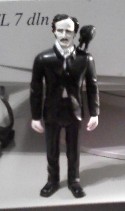
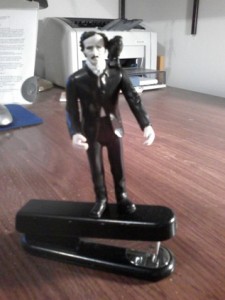
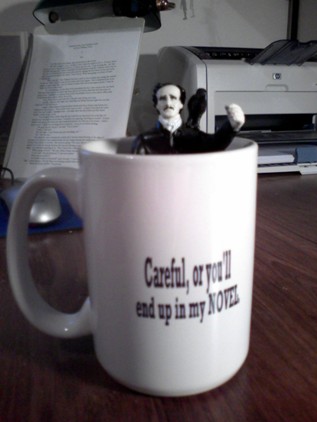
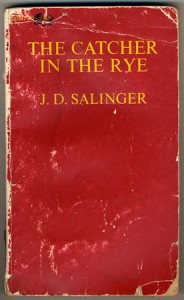
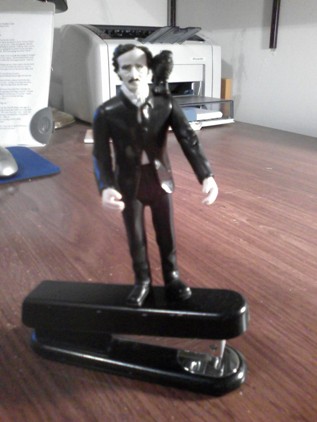 Me: One of the things that strikes me about the Internet is how readily some people share aspects of their lives they wouldn’t dare share with the stranger sitting next to them on the bus.
Me: One of the things that strikes me about the Internet is how readily some people share aspects of their lives they wouldn’t dare share with the stranger sitting next to them on the bus.